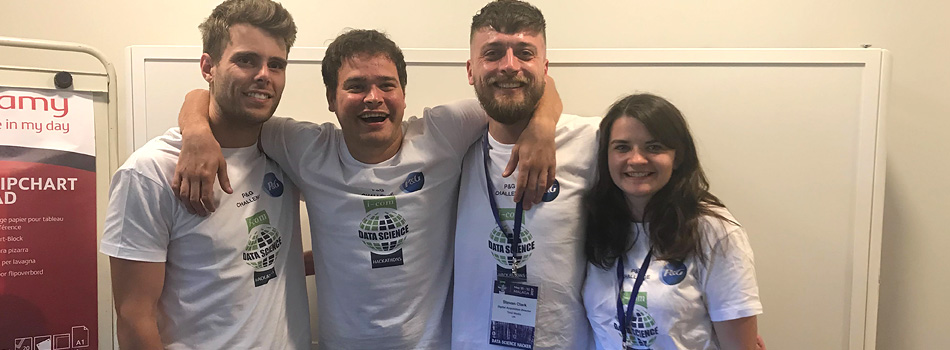1 challenge, 24 hours, approx. 30 cups of coffee between us, an abundance of snacks and lots of brain power are the key ingredients of a Hackathon.
Every year the I-COM Hackathon takes place and teams from all over the world gather to take on various challenges set by high profile brands. In the past the challenges have been solely focussed on data science, however this year one of the challenges called for a combination of data and behavioural science. As a key behavioural agency, Total Media were invited to participate this year and so five of us jetted off to sunny Malaga for the Hackathon.
The challenge was to create a machine learning algorithm to better understand purchasing behaviour of new parents for Proctor and Gamble. P & G wanted more than a basic understanding of consumer behaviour; they wanted a human centred approach to the challenge that really delved into the emotional journey a new parent goes through, touching upon their struggles, hopes and dreams. We conducted qualitative interviews with new parents to compliment the research and quantitative insight from the data, which lead us to form a number of key behavioural insights.
New parents tend to experience a loss of control and independence, which results in them treasuring any free moments they have to themselves. Another key behavioural insight was that new parents have just experienced a life event that destabilises their whole life and routine, therefore making them more open to new behaviours and potentially brands. A consumer insight that emerged was that parents care more about ingredients of the products they use after having a child. Although we would have loved to explore all the insights we only had 24 hours to complete the challenge, so we focussed on the insight that had the strongest emotional resonance. This was that new parents, especially first time parents, often experience a knock to their self-confidence after having a child.
New parents experience internal and external pressures that impact their self-confidence. Internal pressures ranged from doubting one’s own capabilities as a worthy parent to insecurities about appearance. The external pressures are the baby books, random advice and societal expectations of what a ‘good parent’ should be. With all of these pressures coming from every angle it can be overwhelming and hard to avoid a period of low self-confidence.
This insight about self-confidence led us to consider how we could reach new parents to increase their self-confidence, whilst also promoting the P & G range of products. Our idea that developed from the qualitative research and insights from the data was to target new parents who over-indexed on neuroticism traits (in reference to the big 5 model), with positive and supportive messaging.
We did exceptionally well and it was a valuable learning curve for each and every one of us, especially Steve who learnt that he can’t beat the sun.






